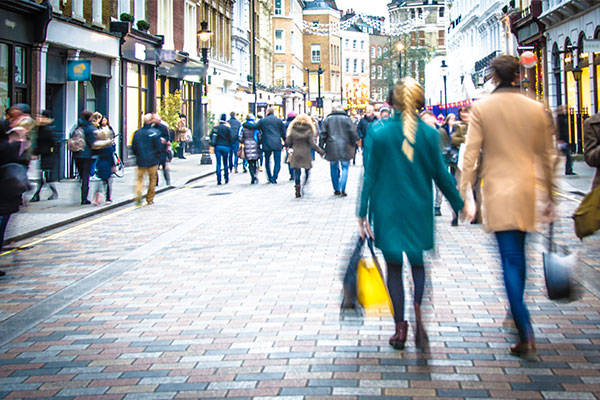In March, consumer card spending with travel agents outpaced growth in non-travel sectors, according to the latest data from Barclays. This trend highlights a noteworthy shift in consumer priorities as travel-related expenditures take the lead.
Despite a slight deceleration from previous months, the travel sector continues to show resilience. As the data indicates, there remains a strong consumer inclination towards travel-related expenses, even amidst broader economic challenges. This report delves into the key figures and factors driving this trend.
Significant Growth in Travel Transactions
Barclays’ recent analysis reveals that consumer spending in the travel sector saw a 7.8% increase in March, with transaction volumes rising by 8.6%. This outpaces the non-travel sectors which only demonstrated nominal growth. The travel industry’s steady performance is indicative of a recovering consumer confidence in the sector.
Airlines and Public Transport Lead the Way
Airline spending surged by 9.7% compared to the previous month, alongside a 13.4% increase in transaction numbers. This highlights a pronounced consumer preference for air travel and public transport services. Higher transaction figures underscore the industry’s robust recovery, as more consumers are opting to spend on travel.
In comparison, other sectors such as hotels and dining only saw modest increases of 1% and 2.6%, respectively. This disparity in growth rates indicates a stronger consumer focus and investment in travel over hospitality and dining. The shift may also be attributed to ongoing promotions and increased travel opportunities.
Challenges in Non-Essential Spending
The overall spending growth stalled at 1.9%, mirroring February’s figures.
Non-essential spending reflected its smallest increase since September 2022, at just 1.6%. Barclays attributes this slow-down partly to adverse weather conditions impacting retail footfall and dining.
Over 45% of consumers reported plans to reduce discretionary spending further, with 53% cutting back on clothing and accessories, and 47% trimming expenses on dining out. This cautious expenditure approach suggests an ongoing consumer effort to balance leisure spending with essential needs.
Retail Sector Prepares for a Rebound
Despite the current lull, retailers remain hopeful for a spending rebound. Barclays’ head of retail, Karen Johnson, pointed to expected improvements due to better weather, energy price reductions, and upcoming events like the Taylor Swift Tour and the Paris 2024 Olympics.
These factors are anticipated to invigorate consumer enthusiasm and spending in the coming months, offering a favourable outlook for retail and travel sectors alike.
Economic Indicators Point Towards Spending Shifts
Chief UK economist, Jack Meaning, highlights the ongoing expansion of the UK economy into 2024, suggesting optimistic conditions for consumer expenditure. Barclays’ data presents an emerging trend of stabilisation, underlining an increased readiness among banks to lower mortgage rates which could further free up consumer finances.
Consistent reductions in housing costs may result in a prospective boost in consumer spending, particularly in the travel sector, marking a shift from recent fiscal constraints.
As such, the travel market is poised for expansion, fuelled by economic policies and consumer behavioural changes.
Industry Confidence in Recovery
In light of recent data, industry professionals remain optimistic about recovering consumer spending patterns. The economic landscape, supported by strategic banking and fiscal decisions, continues to foster a conducive environment for travel-related expenditures.
The ongoing shift, characterised by increased spending on travel, marks a pertinent development in the consumer market, suggesting sustained growth potential in the travel industry.
Looking Ahead
As observed, consumer card spending in travel appears resilient against broader economic headwinds. With supportive economic forecasts and strategic industry initiatives, the outlook for the travel sector remains positive.
This analysis of Barclays’ data demonstrates a robust consumer commitment to travel expenditures, even in a fluctuating economy. Despite challenges, there is a persistent drive towards investing in travel, with promising signs of continued growth and recovery.

